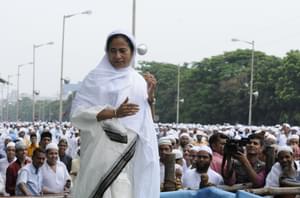When the Supreme Court gave a green signal to the Election Commission’s Special Intensive Revision (SIR) of electoral rolls—starting with Bihar—it should have been a routine administrative update. After all, Article 324 of the Constitution vests the Election Commission of India (ECI) with the authority to supervise, direct, and control elections. Article 326 guarantees universal adult suffrage but limits that right strictly to citizens aged 18 and above. So what’s the fuss about?
Well, ask Mamata Banerjee.
Despite the top court’s nod, the West Bengal Chief Minister has gone into a rhetorical tailspin. Her tirade against the EC’s SIR exercise borders on open defiance, bordering contempt. She thundered that her government will not “allow” the voter roll verification in her state. Allow? Since when did state chief ministers get the authority to veto constitutional mandates of independent institutions?
It’s not just audacity—it’s absurdity. The same political class that cries hoarse about the sanctity of institutions when it suits them now seeks to block a basic voter roll clean-up, raising unfounded fears of “disenfranchisement” and “targeted deletion.” But a closer look reveals the deeper anxiety: a clean electoral roll risks upsetting the demographic manipulation that has, in many places, become a vote-bank strategy.
Let’s strip this issue to its core. The Election Commission, in its affidavit to the Supreme Court, has rightly pointed out that the SIR process is to enhance the purity of elections—not to delete voters on a whim. As per Section 16 and 19 of the Representation of the People Act, 1950, and Section 62 of the RP Act, 1951, only citizens with a qualifying age and ordinary residency are entitled to vote. Aadhaar, ration cards, and voter IDs are being used in tandem only for identity verification, not to deny anyone’s rights.
And here’s the legal clincher: “An ineligible person has no right to vote,” the EC clarified, making it legally airtight. Thus, claims of violations under Articles 19 (freedom of speech and expression) and 21 (right to life and personal liberty) don’t apply when the subject isn’t even entitled to the right in question.

So why the paranoia?
Because illegal immigrants—especially from Bangladesh and Myanmar—have quietly been weaponized as vote banks in border states like West Bengal, Assam, and parts of Bihar and Jharkhand. In Bengal alone, estimates suggest lakhs of such illegal entrants have over the years been granted identity documents through a web of political patronage, local-level corruption, and institutional apathy. Their inclusion in the electoral roll not only distorts the democratic process but undermines national security.
The demographic evidence is hard to ignore. Look at Kerala. Once Hindu-majority, it now faces a rapid tilt toward a minority-dominated political axis. How did that happen? Unchecked illegal migration, selective appeasement, and identity-based political mobilization. West Bengal is heading down the same path—with demographic shifts altering not just politics, but the very cultural and social fabric of the region.
And when the EC, after a decade, decides to do what it is constitutionally mandated to—verify and clean up the rolls—TMC’s response is panic, not cooperation. Mamata’s veiled threats should worry anyone who cares about institutional independence. Because when a state government refuses to cooperate with a constitutional authority acting under Supreme Court oversight, we inch closer to lawlessness masked as federalism.
Let’s also call out the broader hypocrisy of the Congress-led INDIA alliance. When election results don’t go their way, the first target is the EC. But when the EC acts on its mandate with transparency, they allege bias. When voters elect the BJP, the opposition cries foul; when voters support them, suddenly the EC is “independent” again. You can’t have it both ways.
Yes, the SIR process will identify ineligible entries—but it will also add eligible new voters, especially 18-year-olds and recent migrants who qualify as citizens. This isn’t exclusion; it’s correction. In fact, this revision should have been celebrated across party lines as a move to strengthen democracy. Instead, it is being demonized by those who fear that the ghost voters of yesterday might not survive the scrutiny of tomorrow.
In the end, democracy doesn’t just mean voting—it means legitimate voting. Without a credible voter list, elections become theatre. The EC is simply fulfilling its constitutional duty. The only people who should be rattled are those who’ve been riding on inflated rolls, not real voters.
If Mamata Banerjee or her party has genuine concerns, let them raise it legally. But to threaten non-cooperation is to spit on the Constitution she swore to uphold.
India deserves clean elections. And the voter roll cleanup is the first—and most essential—step.





